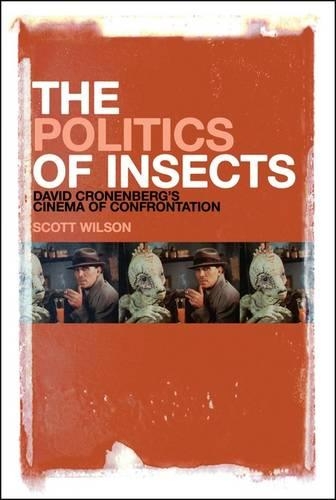
The Politics of Insects: David Cronenberg's Cinema of Confrontation
(Hardback)
Available Formats
Publishing Details
The Politics of Insects: David Cronenberg's Cinema of Confrontation
By (Author) Scott Wilson
Continuum Publishing Corporation
Continuum Publishing Corporation
20th October 2011
United States
Classifications
Professional and Scholarly
Non Fiction
Film history, theory or criticism
791.430233092
Physical Properties
Hardback
256
536g
Description
Canadian film director David Cronenberg has long been a figure of artistic acclaim and public controversy. Bursting into view with a trio of shocking horror films in the 1970s, Cronenberg's work has become increasingly complex in its sensibilities and inward-looking in its concerns and themes. This trajectory culminates in the multiplex successes of his most recent films, which appear to conclude a straightforward evolutionary arc that begins in the cold outside of shock-horror and arrives in the warm embrace of commercial and critical success.
Scott Wilsonargues persuasivelythat Cronenberg's career can be divided into broad thematic stages and instead offers a complex examination of the relationship between three inter-related terms: the director as auteur; the industry that support or denies commercial opportunity; and the audience who receive, interpret and support (or decry) the vision represented on screen. The Politics of Insects provides an opportunity to explore Cronenberg's films in relation to each other in terms of their thematic continuity, and in terms of their relationship to industrial concerns and audience responses.
Reviews
In The Politics of Insects, Scott Wilson has produced a penetrating account of David Cronenberg as political modernist. Drawing on Slavoj Zizek's notion of the heretic, as one who takes specific ideological injunctions and disciplinary structures at face value in order to reveal their fictive, constructed nature, Wilson shows, through sustained and exact analysis of Cronenberg's films, from Shivers to Eastern Promises, the political critique effected by his cinema. He re-invigorates many of the issues that characterised an earlier phase of film theory, drawing on Althusser, Foucault, Baudry, Narboni, and others, to draw out what it is for Cronenberg to have laid bare the devices of cinematic narration. Paying close attention to the determining structures of films like Spider and Videodrome, Wilson makes clear how narrative can be made to operate in such a way that the reality it describes merges unendingly with its own reality as narrating process. Narration is to be seen, not as the representation of an event, but as that event itself. What films such as Videodrome represent is thus, in Lacan's words, the lack of the very function that engenders them. As a result, the structure of diegetic reality is rendered permeable and the boundary between objective and subjective is breached'. Taking as his guide Cronenberg's description of his project' as being to show the unshowable, speak the unspeakable', Wilson contends that the aim of these films is to extend cinema up to and beyond its limits, to move beyond what is intelligible, to show what cannot be shown, the Real, the pre-ontological': to penetrate the region of insect politics'. This project is seen to extend through the increasingly sophisticated texts of Cronenberg's later work. I have no doubt that this book will establish itself, not only as the most profound study of David Cronenberg, but also of the political theory of cinema, to have appeared this century. --Michael Grant, University of Kent, Canterbury, Kent
Scott Wilson's The Politics of Insects is a breath-taking study of David Cronenberg's oeuvre. Insightful, provocative and playful, the book offers the reader a compelling account of the themes and dreams of this insides/outsides director. Wonderfully illustrated, incredibly well-researched, the book deserves to be read by all Cronenberg fans, and students and scholars interested in the art and meaning of humanness and the violence that surrounds and wells up in us all. --Sean Redmond, Associate Professor, Deakin University, Melbourne, Australia
Scott Wilson's reading of the cinema of David Cronenberg is full of interest. Employing tools derived from Foucault, Althusser, iek and cinematic apparatus theory, The Politics of Insects takes Cronenberg studies to places it has never been before. Wilson offers a stimulating and carefully argued perspective that examines every phase of Cronenberg's career and produces an interpretation of this fascinating artist that is both illuminating and thought-provoking. The Politics of Insects should be required reading for all serious devotees of the filmmaker. --William Beard, Professor of Film Studies, University of Alberta, Canada, and author of The Artist as Monster: The Cinema of David Cronenberg
Author Bio
Scott Wilson is aSeniorLecturer in film history, film theory, and cultural studies in the Department of Performing and Screen Arts at Unitec, Institute of Technology in Auckland, New Zealand.
